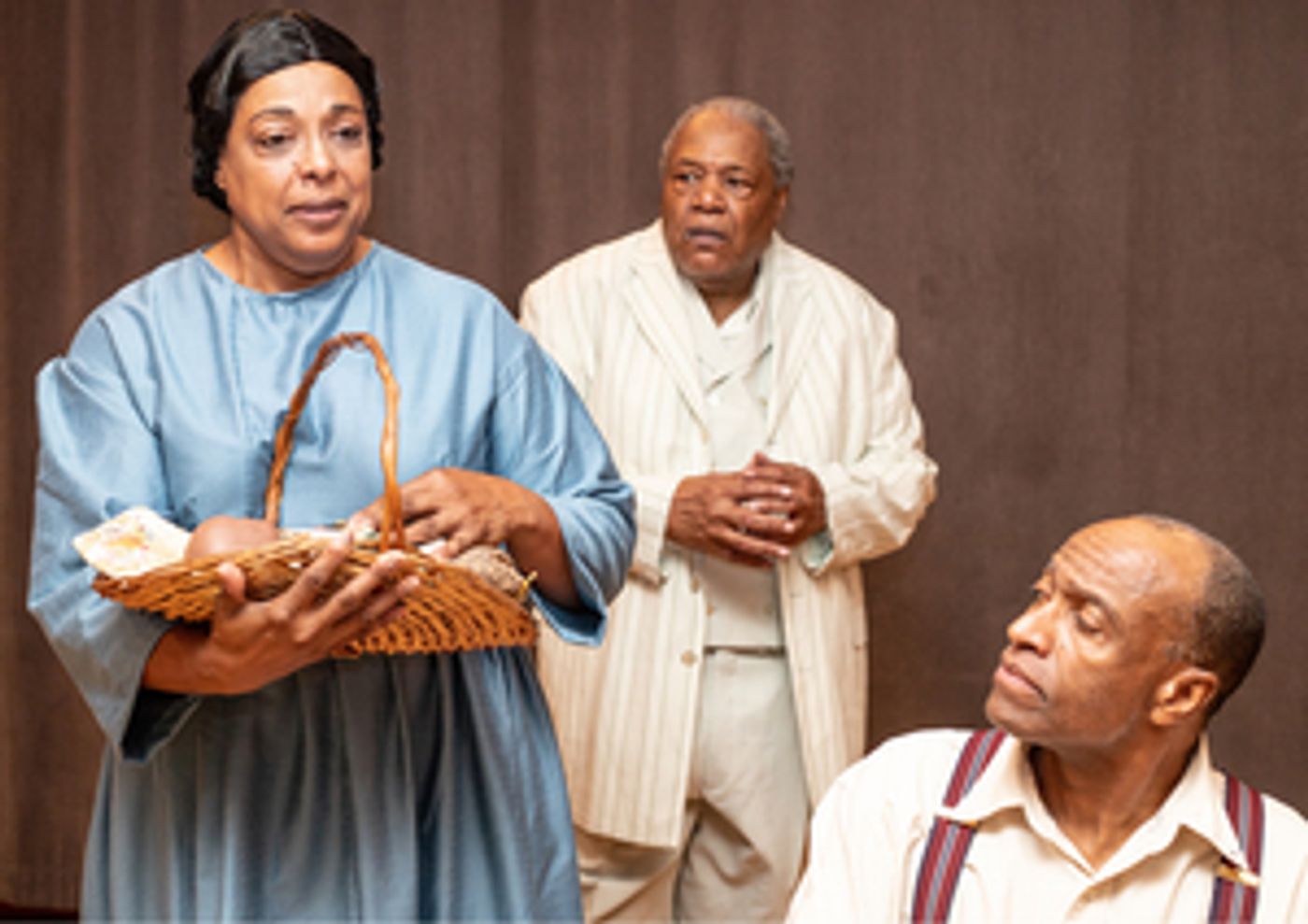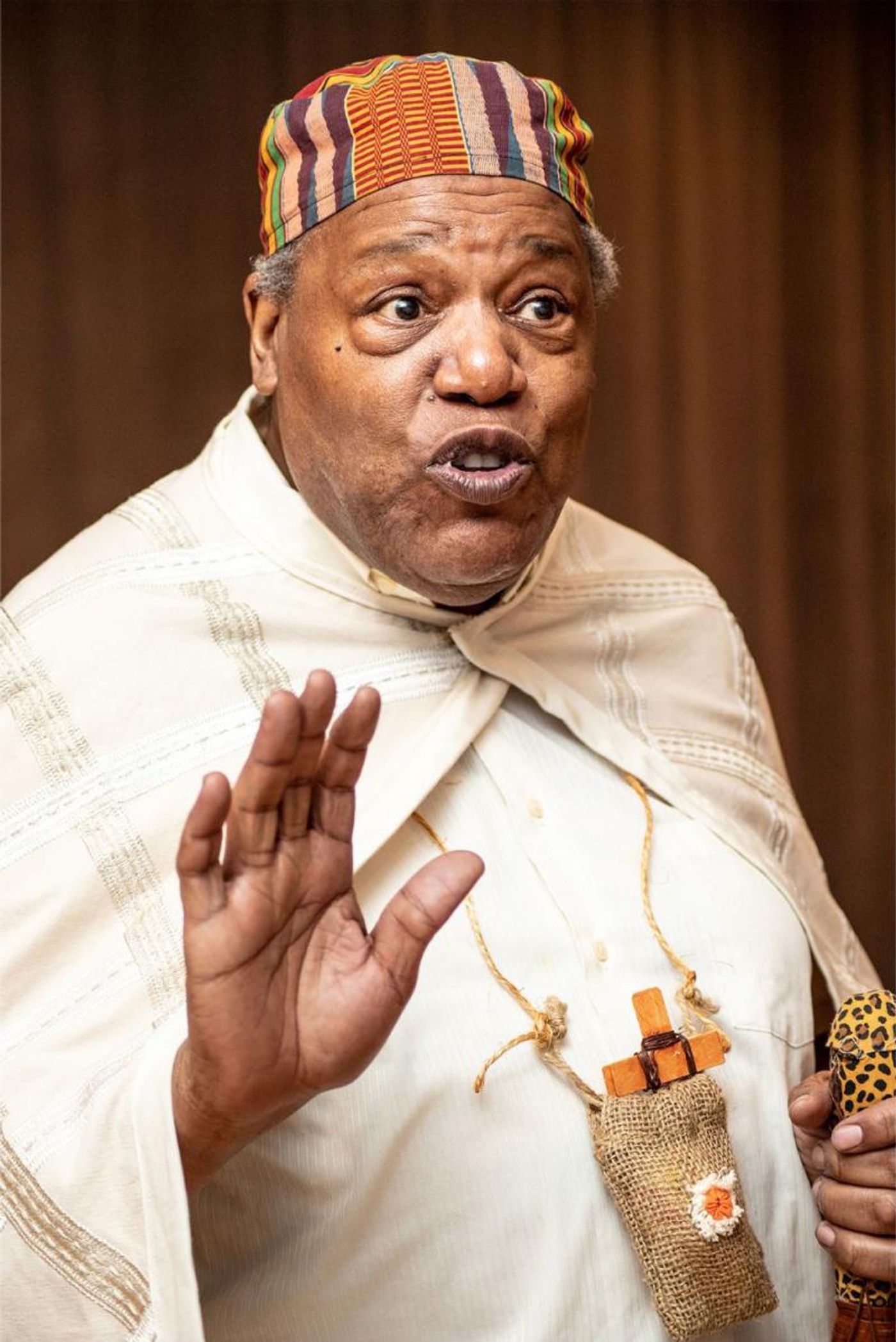Review: QUILTING THE SUN Shines at Theater For The New City

Step aside, Joseph; your amazing technicolor dreamcoat has some serious competition.
When Harriet Powers' beautiful bible quilt appears onstage in QUILTING THE SUN, it's an applause-generating showstopper for a play where common threads of dreams, rituals, faith and family are stitched together against a backdrop of religion and racism.
Set in Athens, Georgia in 1886, QUILTING takes its time (two acts, 30+ scenes) to tell the inspiring story of Harriett Powers, a farmer's wife, former illiterate slave, and mother of nine who created quilts that received early nominal attention and eventual national acclaim. Part of what brings the beauty of playwright Grace Cavalieri's story to light are the dark post-slavery attitudes that dwell there. Mimi B. Francis in the role of Harriet Powers faces one obstacle after another with steadfast strength, grace, and a sense of humor.
Adapted from a teleplay that Cavalieri (Maryland's current Poet Laureate) wrote more than a decade ago, QUILTING proves that fiction and authenticity don't have to be mutually exclusive. In addition to doing extensive site-specific research, Cavalieri worked with Gladys-Marie Fry, author of Stitched from the Soul, to explore the context and influence of Powers and her intricate work. The quilt itself is a catalyst for the play's surface questions ("What is art? Who decides its value?") as well as its deeper dimensions ("When the seller is black and the buyer is white, what's the true transactional value of the exchange?")

Cavalieri opens the play with Juju Man (Andrew R. Cooksey, Jr.), a conjurer who uses African spells as religious practice among members of the black community: "The power is with us all the time, in the things we make with our hands. That's' where the spirit live...Gods just shadows of us, in the things we make, with our hands. That's where we tell our story."
Harriet's art of storytelling is her craft of translating sermons she hears into quilts she sews: "...I can remember what I hear a long time. Everybody sees things in their head. I just put them down so other people can see them." However, although Harriet is an artistic genius, she doesn't see herself as such. Rather, she thinks God talks to her through her hands.
And God isn't the only one talking to her. When she faces a moral dilemma regarding the potential sale of her beloved quilt to the young-and-white art teacher Jennie Smith (Taylor Lynne), she has no shortage of opinions at the ready. Her husband Armstead (Dan Kelley) considers the quilt a way out of poverty. Alonzo (Tyler Christian Nelson) is Harriet's wise-beyond-his-7-years son who sees his mama's potential being limited by her illiteracy. Big Mama (Lydia Trueheart) and Ole Uncle Jerry (Cooksey) have a perspective only elders can provide. Millie Rutherford (Mary Tierney) and Laura (Sarah Kebede-Fiedler) are both eager quilting students of Harriet's, although each has a particular way of managing that relationship to her advantage.
Directed by Shela Xoregos in a space too big for such an intimate production, QUILTING is not a tale meant to offer pure comfort. The show juxtaposes Harriet's influence (Harriet: "My gran taught my Mama. She taught me. I taught Lizzie and I'll teach Armanda") against cultural commentary reflecting how far we as a post-slavery society still have to go: (Jennie: "The Africans as a race are not an artistic people yet these innovations, you see, allow fancies full rein. Usually the quilt design is severely conventional, handed down from generation to generation.")
The racist vibe is most overt in the words and deeds of Jonathan (Liam Swan). The son of a compassionate white family who is prominent in the lives of the black community, he is also a member of the Ku Klux Klan. Rather than demonize or dismiss anyone, Cavalieri puts Powers center square and creates her characters' edges through clear conflict.
While Powers' quilt is archived in the Smithsonian's National Museum of American History, its legacy lives on in QUILTING THE SUN. And kudos to Mary Campbell and Wendy Peck, two quilters who recreated the replica of Power's bible quilt that stars in the show.
QUILTING THE SUN, part of the Dream Up Festival, runs through September 11. To reserve tickets, call (212) 254-1109 or reserve them online here.
Photos: Maria Mejia
Reader Reviews
Videos

